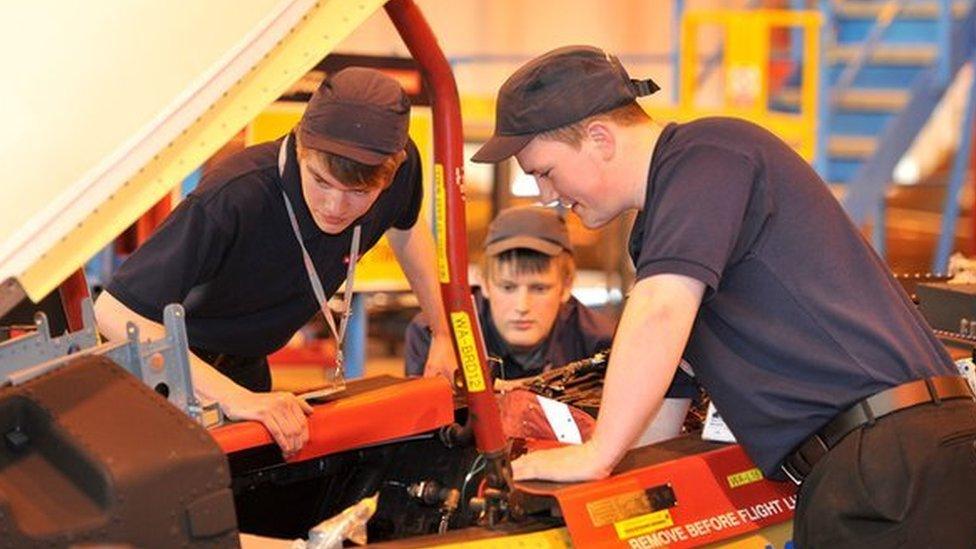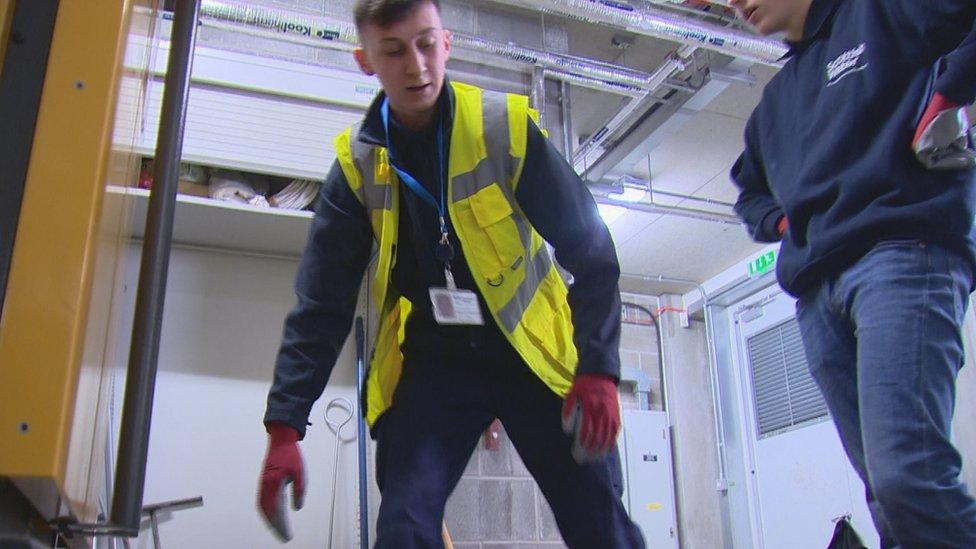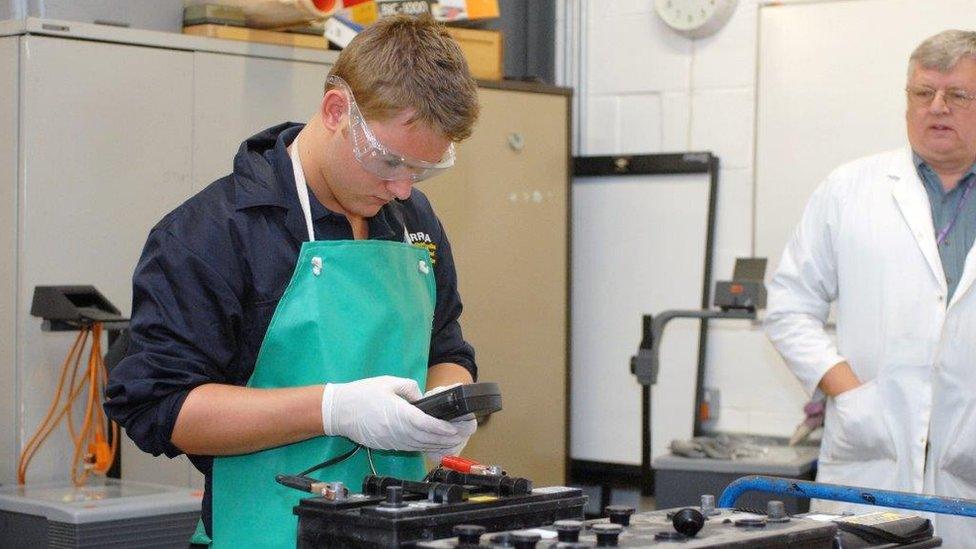CBI criticises short-term policies to improve skills base
- Published

The latest measures to improve Britain's skills base are not working, the CBI employers' group has warned.
The organisation, which represents the UK's biggest companies, said programmes such as the apprenticeship levy had "alienated" firms.
CBI managing director Neil Carberry criticised successive governments' short-term approach to tackling the country's skills shortage.
"We need a skills approach that lasts for 50 years, not five," he said.
The CBI said 28 separate policy reforms in the past 30 years had led to confusion and failed to deliver on what was needed to improve skills.
It said that if the government was committed to a long-term industrial strategy, there needed to be a long-term approach to raising the quality of Britain's workforce.
Mr Carberry called for more effort nationally on improving quality, rather than introducing new qualifications.
"Too often skills reforms have been well-intentioned, but do not work for learners or businesses across the country, so the system is reinvented again.
"The apprenticeship levy [a tax on firms to support skills training] is the latest example of a policy that's not yet right.
"There is an opportunity now to establish a stable framework for skills in England - by the government reviewing the levy and creating a world-class technical system through T-levels."
T-levels are designed to simplify the process of vocational training in England.
Mr Carberry said that if the government could convince employers and skills providers that the system would not keep changing, firms would invest more in improving the skills base.
A government spokesman defended the success of the skills levy.
"The apprenticeship levy provides a real opportunity to tackle the skills shortages we are currently facing, and we will continue to work with levy payers so it can be spent effectively.
"Through our industrial strategy we are committed to creating the well-paid, high skilled jobs of the future."
- Published12 January 2018

- Published23 November 2017
